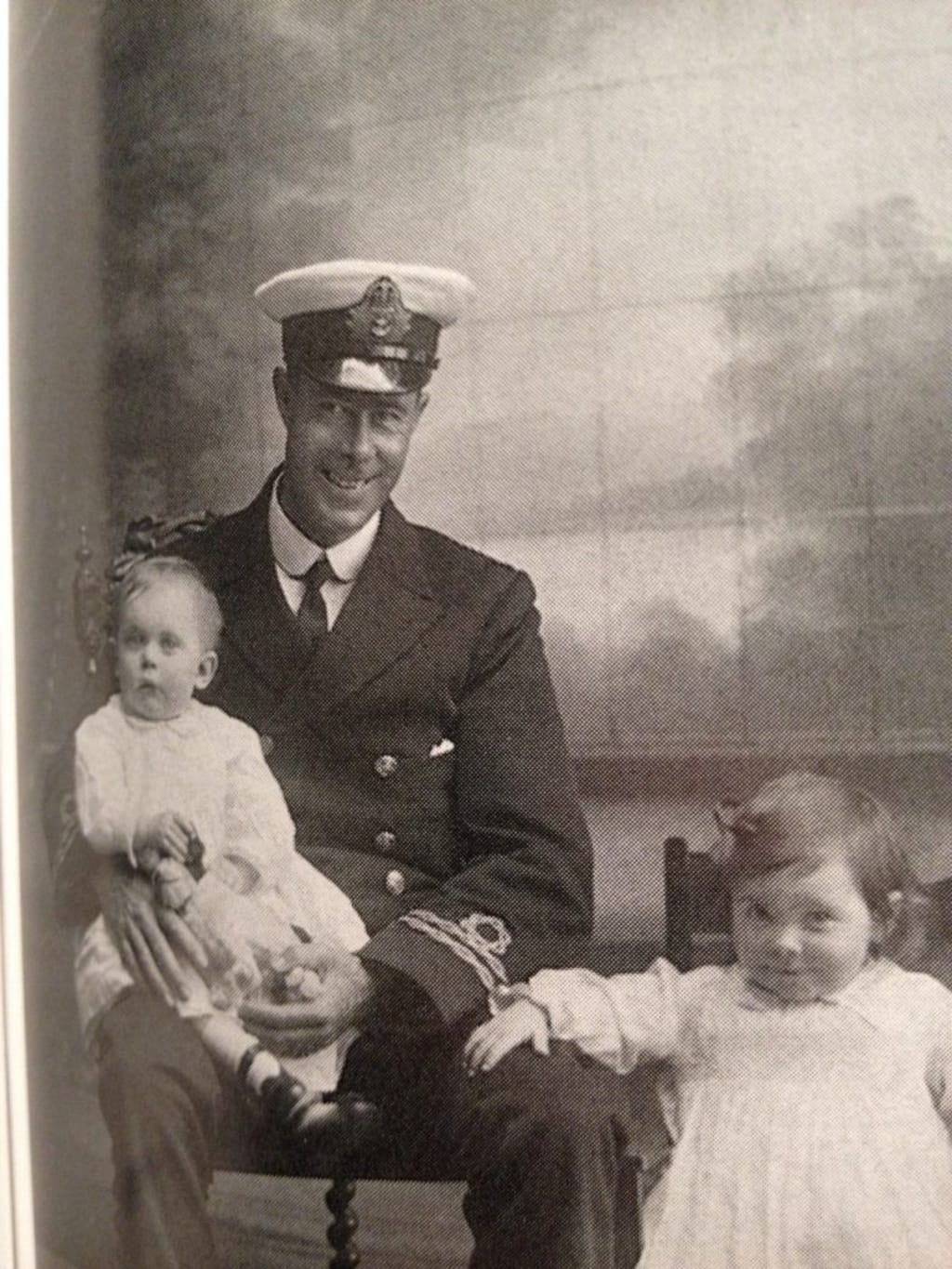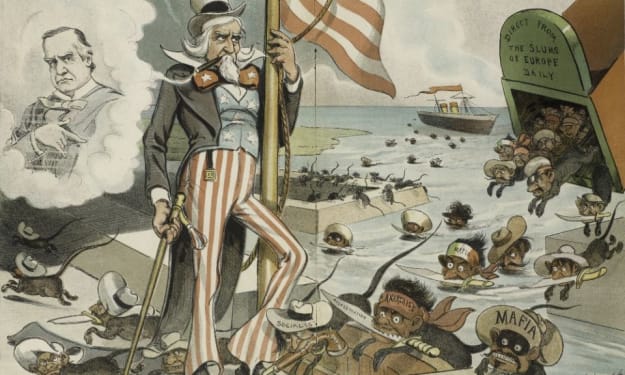Harold Lowe, the unsung hero of the Titanic disaster
Fifth Officer Lowe was only 28 years old when his life at sea changed forever. He hasn't received the credit he deserves.

I just finished Titanic Valour: The Life of Fifth Officer Harold Lowe, the biography of the 28-year-old Titanic officer who is best known as "the guy with the gun." Most people remember the shooting scene from the movie. It's a turning point scene; it's when Cal tells his servant that things are "starting to fall apart" and this is more serious than they thought. But that's pretty much all you see of Harold Lowe. Lowe was such a minor character that few people realize the "guy with the gun" is also the guy who returns to the wreck to pick up survivors. (In the movie, he finds Rose floating on a door; in real life, it was a Chinese guy they found atop a door - a scene that James Cameron cut from the movie.) No one even calls him by his full name. In fact, the only time Lowe's name is ever mentioned in the movie is when Officer Lightoller says, "Mr. Lowe, man this boat," and hands him his revolver. This is right after Lightoller tells a group of unruly men he'll "shoot them all like dogs," while Lowe comes across as Lightoller's polite, level-headed junior officer.
I know a lot about the Titanic, so I knew most of the movie was impeccably accurate in detail while getting the characters all wrong. For starters, James Cameron basically reversed Lowe and Lightoller's actions and personalities. Lightoller didn't hand Lowe a gun. He wasn't there - he was in the first class section, toward the bow. Also, no one on the ship was supposed to be armed. The Chief Officer and the Master-at-Arms may have had concealed pistols, but they kept them hidden from the passengers. The Titanic was an official "gun-free zone." Guns tended to scare the prissy people in first class, and the White Star Line, in true British fashion, thought firearms were distasteful and barbaric. They figured they'd only need them to control the rowdy immigrants in third class - which they addressed preemptively by throwing up locked iron gates. Just like today, the wealthy, sophisticated progressives considered guns a dirty working-class thing. They handled threats the same way Lexus liberals still handle threats: with private security guards (who are often armed on the low, even as the person employing the guard denounces gun ownership), and with gates to keep out the riffraff. In general, it works for them. Who needs a gun when you have hired goons to beat up people who irritate you, as well as iron gates to keep you walled off in luxury?
Well, it's a good thing Harold Lowe went ahead and brought his "personal weapon" on board! He was not supposed to have a gun. When the American Senators holding a Congressional hearing demanded to know why, Lowe replied, "Well, you never know when you might need it." Unlike the rest of the officers, he had served in the military and had seen some truly life-threatening situations at sea. So he used his "personal weapon" to keep a group of men from charging his boat.
It's pretty well-known that men managed to get into lifeboats on the starboard side of the ship, while the port lifeboats left with women and children only. A lot of Titanic historians treat this like a matter of random chance instead of individual officers' conscious decisions about whether to only save women and children, regardless of class, or to make exceptions for rich dudes. (Cal's servant Lovejoy notes this in the movie. When Cal starts bitching about the crew - in real life, Lowe - actually enforcing the rules and refusing to take bribes, he says, "The ones on the other side are letting men on." Cal then praises their common sense and "practicality" in accepting cash bribes from rich guys.)
It was Lowe, not Lightoller, threatening to shoot men storming the boats. Bruce Ismay, the president of the White Star Line who was intent on catering to millionaires, ordered him to watch his language and kiss the rich passengers' asses; Lowe responded with "such vile and obscene language" that the ladies were "convinced he was under the influence of alcohol." Apparently, Lowe either called Ismay a "cocksucker" or told him to "suck my d - -." (Or both. Knowing what I know about this guy, probably both.) That, combined with the gun, was all the aristocrats needed to demonize Lowe. By the end of the Congressional hearings, Lowe was on the verge of being fired and criminally prosecuted. Everything that went wrong - such as underfilling the lifeboats - was somehow Lowe's fault; meanwhile, neither the American Senators nor the European and American elites seemed to care that Lowe was the only one who returned to rescue people. If anything, they were pissed he didn't do it sooner, and that he merely rescued an icky Chinese immigrant and some lowly crew members, instead of rich guys from first class. They even forced Lowe to give a sworn affidavit about the shooting incident in an attempt to get him to incriminate himself.
Luckily, the women who were actually in Lowe's boat, as well as several people he rescued - including a couple of Irish girls from third class - put a stop to this smear campaign, giving sworn statements about how Lowe had saved their lives, and that his sole focus was on rescuing as many women and children as possible. He was also accused of using "racist" language for lamenting he had rowed back to the wreck only to find "a Jap." In reality, he was devastated that he found a bunch of dead women, and never really forgave himself for waiting about 40 minutes to return, instead of going immediately. (In the movie, Lowe is seen holding back tears after he shines his light on a dead Swedish woman holding a baby.) I admire his ability to stand his ground in the face of people trying to intimidate him. He refused to apologize for the gun, saying he would do it again. As for the "racism" allegation, he refused to entertain the notion that what we say matters more than what we do. He navigated his boat through floating debris and dead bodies to save a Chinese man's life. What more could they ask of him?
More importantly, why was Lowe the only one willing to put his own life on the line to save someone else? Lowe went down in Titanic history for the wrong reasons. He's rarely identified as the MVP of the night, a title he indisputably deserves.
Was Harold Lowe a little crazy? Probably. I found myself saying at multiple points in the book, "Wow, what a nut." But the good thing about nutty people is that they don't play by anybody else's rules, about what's tasteful and polite and socially acceptable, and what "everyone" knows. They have courage, and that comes in handy when disaster strikes.
About the Creator
Ashley Herzog
If you like my work, feel free to tip your writer.







Comments
There are no comments for this story
Be the first to respond and start the conversation.